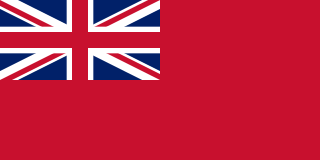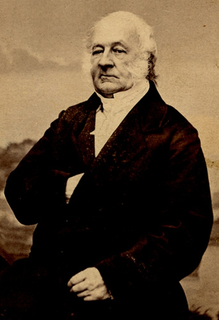Jean-Charles Létourneau (November 28, 1775 – April 21, 1838) was a notary and political figure in Lower Canada.

Civil-law notaries, or Latin notaries, are agents of noncontentious private civil law who draft, take, and record instruments for private parties and are vested as public officers with the authentication power of the State. As opposed to most notaries public, their common-law counterparts, civil-law notaries are highly trained, licensed practitioners providing a range of regulated services, and whereas they hold a public office, they nonetheless operate usually—but not always—in private practice and are paid on a fee-for-service basis. They often receive the same education as attorneys at civil law but without qualifications in advocacy, procedural law, or the law of evidence, somewhat comparable to solicitor training in certain common-law countries.

The Province of Lower Canada was a British colony on the lower Saint Lawrence River and the shores of the Gulf of Saint Lawrence (1791–1841). It covered the southern portion of the current-day Province of Quebec, Canada, and the Labrador region of the modern-day Province of Newfoundland and Labrador.
He was born in Saint-Pierre-de-la-Rivière-du-Sud in 1775 and studied at the Petit Séminaire de Québec. Létourneau articled as a notary with Roger Lelièvre and later Nicolas-Gaspard Boisseau, qualifying to practice in 1803. He set up practice in the parish of Saint-Thomas at Montmagny and, in 1806, he married Catherine, Boisseau's daughter. Létourneau was named commissioner for several public works projects in the area. In 1827, Létourneau was elected to the Legislative Assembly of Lower Canada for Devon. He was elected to represent L'Islet in 1830 and 1834. He supported Louis-Joseph Papineau and voted for the Ninety-Two Resolutions.

Saint-Pierre-de-la-Rivière-du-Sud is a parish municipality in Quebec.

Le Petit Séminaire de Québec is a private French-language Roman Catholic secondary school in the Vieux-Québec area of Quebec City, Quebec which was originally part of the Séminaire de Québec. In 1985, the seminary transferred the secondary school to a new secular not-for-profit organization, "le Collège François-de-Laval", which was given the right to use the "Petit Séminaire de Québec" name.
Nicolas-Gaspard Boisseau was a notary and political figure in Lower Canada.
He died at Saint-Thomas in 1838 after suffering a long illness.
This page is based on this
Wikipedia article Text is available under the
CC BY-SA 4.0 license; additional terms may apply.
Images, videos and audio are available under their respective licenses.
Joseph Dufresne was a Quebec notary and political figure. He was a Conservative member of the House of Commons of Canada representing Montcalm from 1867 to 1871.
Louis Lacoste was a Quebec notary and political figure. He was a Conservative member of the Senate of Canada from 1867 to 1878.
Thomas Boutillier was a Quebec doctor and political figure.
André Jobin was a notary and political figure in Lower Canada and Canada East.
Louis Turgeon was a notary, seigneur and political figure in Lower Canada.
Thomas Coffin was a businessman, seigneur and political figure in Lower Canada.
Jacques Dorion was a doctor and political figure in Lower Canada.
Lt-Colonel The Hon. Louis-Charles Foucher was Solicitor General for Lower Canada and elected to the 2nd Parliament of Lower Canada for Montreal West, and afterwards for York and Trois-Rivières. His final position held was Judge of the Court of King's Bench at Montreal. His home from 1820, Piedmont, was one of the early estates of the Golden Square Mile.
Jean-Marie Mondelet was a notary and political figure in Lower Canada.
Dominique Mondelet was a lawyer, judge, seigneur and political figure in Lower Canada.
Alexandre Dumas was a lawyer, notary, businessman and political figure in Lower Canada.
Joseph-Narcisse Cardinal was a notary and political figure in Lower Canada. He was the first person executed for taking part in the Lower Canada Rebellion.
Jean-Joseph Girouard was a notary and political figure in Lower Canada.
Jacques Labrie was a physician and political figure in Lower Canada.
Thomas Lee was a notary, merchant and political figure in Lower Canada.
Jean Bouffard was a notary and political figure in Lower Canada. He represented Dorchester in the Legislative Assembly of Lower Canada from 1832 to 1838.

Louis Panet was a notary and political figure in Quebec. He sat for La Salle division in the Senate of Canada from 1871 to 1874. Panet also represented La Salle in the Legislative Council of Quebec from 1867 to 1884.
Jean-Baptiste Taché was a notary and political figure in Lower Canada. He represented Cornwallis from 1820 to 1824 and Rimouski from 1834 until the suspension of the constitution in 1838 in the Legislative Assembly of Lower Canada. Taché served as a member of the special council that governed Lower Canada from 1839 to 1841 and was a member of the Legislative Council of the Province of Canada from 1841 to 1849.
André-Benjamin Papineau was a notary and political figure in Lower Canada. He represented Terrebonne in the Legislative Assembly of Lower Canada from 1837 until the suspension of the constitution in 1838.





